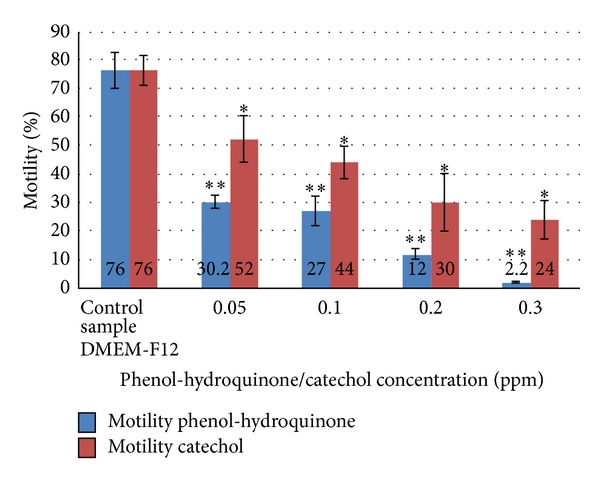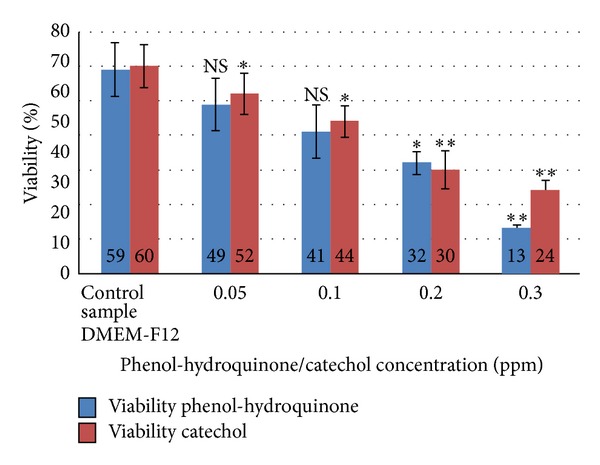Cytotoxic effects of benzene metabolites on human sperm function: an in vitro study.
引用次数: 20
Abstract
In recent years, individuals are rampantly exposed to vapours of benzene, through paint, plastic, petroleum industries, fuel exhaust, and tobacco smoke. Hence the present investigation was directed towards determining the effect of benzene metabolites, namely, phenol-hydroquinone and catechol, on the motility, viability, and nuclear integrity of the human spermatozoa. From the results obtained it was clear that exposure to phenol-hydroquinone caused a significant decline in both, sperm motility and viability. Exposure to a phenol-hydroquinone (Phase I) microenvironment may therefore inhibit metabolically active enzymes, thus impeding ATP production, and in turn lowers sperm motility and viability. In addition, the present study also revealed that both metabolites of benzene caused significant denaturation of sperm nuclear DNA. Hence, exposure to phenol-hydroquinone in vitro could have resulted in generation of free radicals and altered membrane function, which is reflected by a decline in the motility, viability, and loss of sperm nuclear DNA integrity. In Phase II, the exposure of human sperm in vitro to varied concentrations of catechol caused only insignificant changes in sperm motility and viability as compared to those observed on exposure to phenol-hydroquinone. Hence, exposure to catechol appeared to have less toxic effects than those of phenol-hydroquinone.


苯代谢物对人类精子功能的细胞毒性作用:一项体外研究。
近年来,人们通过油漆、塑料、石油工业、燃料废气和烟草烟雾,大量地接触到苯的蒸气。因此,本研究的目的是确定苯代谢物,即酚对苯二酚和儿茶酚对人类精子的活力、活力和核完整性的影响。从获得的结果可以清楚地看出,暴露于酚对苯二酚会导致精子活力和生存能力的显著下降。因此,暴露于苯酚-对苯二酚(第一阶段)微环境可能会抑制代谢活性酶,从而阻碍ATP的产生,进而降低精子的活力和生存能力。此外,本研究还发现,苯的两种代谢物均引起精子核DNA的显著变性。因此,在体外暴露于酚对苯二酚可能导致自由基的产生和膜功能的改变,这反映在活力、活力和精子核DNA完整性的丧失上。在第二阶段,人类精子在体外暴露于不同浓度的儿茶酚中,与暴露于酚对苯二酚中观察到的精子活力和活力相比,仅引起了微不足道的变化。因此,暴露于儿茶酚的毒性作用似乎比暴露于酚对苯二酚的毒性作用小。
本文章由计算机程序翻译,如有差异,请以英文原文为准。
求助全文
约1分钟内获得全文
求助全文

 求助内容:
求助内容: 应助结果提醒方式:
应助结果提醒方式:


